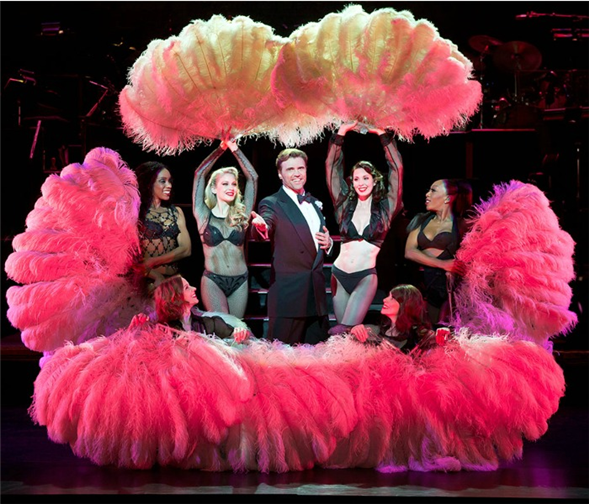Translate Page

Rewatching the musical during this violent time drove its message home
---
When my brother in Baltimore suggested I take his daughter to see Chicago this past summer, I thought, "Good idea." I'd seen the musical eons ago and remembered its smart-aleck attitude and sinewy, gyrating chorus. I figured at least one of those things would appeal to an 18-year-old majoring in psychology. What I hadn't factored in was the series of racially charged shootings that would set the country on edge in the days leading up to our matinee:
July 5: Alton Sterling killed by two police officers in Baton Rouge, Louisiana.
July 6: Philando Castile killed by a cop in Falcon Heights, Minnesota.
July 7: Five police officers killed by a sniper in Dallas, Texas.
An irreverence for deadly assault was decidedly not in the air.
Still, though we initially winced when the M.C. cheekily welcomed us to a musical about "murder, greed, corruption, violence, exploitation, adultery and treachery -- all those things we hold near and dear to our hearts," we soon found ourselves under Chicago's potent spell. Both "Cell Block Tango" (with its sextet of murderesses) and "We Both Reached for the Gun" (with its puppetry of perjury) met with unmitigated applause. We joined right in. But oh how it all troubled me come curtain call.
Looking back at that performance, the one time I recall an audience member reacting negatively was when a woman nearby exclaimed, "What the hell?!" in response to a lyric from "Class:" "Any girl'd touch your privates for a deuce." Apparently, sex still had the ability to shock. Gunning down unfaithful yet unarmed lovers? Not so much. Why is this, I wondered. Are we inured to "murder, greed, corruption, violence?" Aren't crimes of passion still homicides? Are we guilty of being too damned entertained by it all?
If theatre's job is to make us think, then Chicago had me working overtime. I was haunted by that production. I'm still thinking about it now. Throughout the summer, I dug deeper into the show and its source material. I went to the all-female Japanese version at Lincoln Center. I watched the 1942 black-and-white comedy Roxie Hart starring Ginger Rogers. I even dug up Maurine Dallas Watkins' original torn-from-the-headlines 1926 play which started it all. And what I discovered is everybody loves an underdog.
We rally behind Roxie because she's a pretty-faced long-shot full of hope, determination, and grit. Her murderous tendencies aren't meant to shock us in the least. But what should jar us is her utter lack of remorse. The death of Roxie's lousy lover is nothing compared to the death of integrity. This shameless chorine forfeits it all for fame.
Chicago is not a show about innocents. "He had it coming…" as one song says. Yet when Roxie sings her final duet with pseudo-sister Velma, their refrain is bittersweet, not triumphant. "Isn't it grand? Isn't it great? Isn't it swell? Isn't it fun?" they ask us. And the answer is: yes and no. Yes, the audience enjoys watching them beat a rigged system, despite their obvious guilt. Yet we wouldn't mind seeing these ladies eventually get the chair.
What's radically different outside the Ambassador Theatre is how often the victims didn't "have it coming" at all. The "murder, greed, corruption" championed by the show's M.C. aren't signs of the time; they're symptoms of long-standing ills. In August 2016, the city of Chicago experienced its "bloodiest month in two decades," according to ABC News, which cited 90 murders and 384 shootings. Which, when you think about it, means things were just as bad in 1996, the same year the current Broadway revival began. The difference now is we've got viral videos of many of these heinous acts.
Sandra Bland, Charles Kinsey, Keith Lamont Scott -- these names and many others echo in my mind, and I know I'm not alone. I'm not becoming desensitized; I'm reeling from the reality. Sex sells. Money corrupts. Talk's cheap. And yes, black people die in the streets and the perpetrators walk away scot-free, time and time again. Our checks and balances are unchecked, unbalanced. Chicago isn't cynical, it's honest. As a portrait of our country viewed in a fun-house mirror. It's warped, but no more distorted than our society. No musical currently speaks to and about America's crisis -- and what's wrong with the system -- as effectively as this one. It's crass, anarchic, irreverent, and, hell, unnervingly real.
---
Drew Pisarra's theatre experiences range from ventriloquist (Singularly Grotesque) to librettist (The World Is Round), choreographer (Ladies' Voices) to master of ceremonies (White Wines). Follow him on Twitter at @mistermysterio. Follow TDF at @TDFNYC.
Photo: Jeremy Daniel
TDF MEMBERS: Browse our discounted tickets to theatre, dance, and concerts.